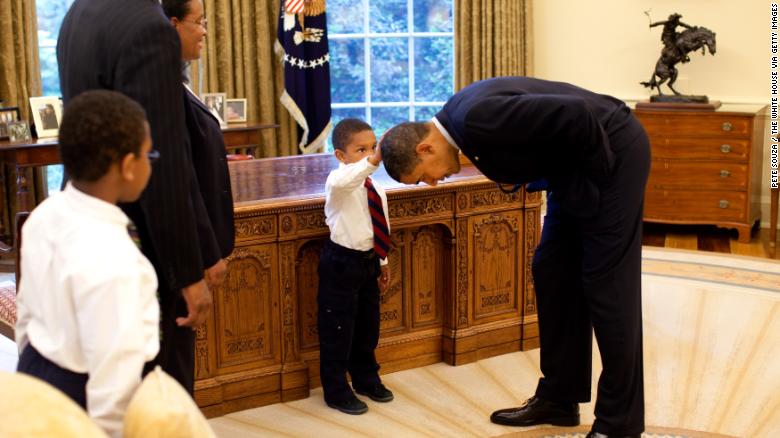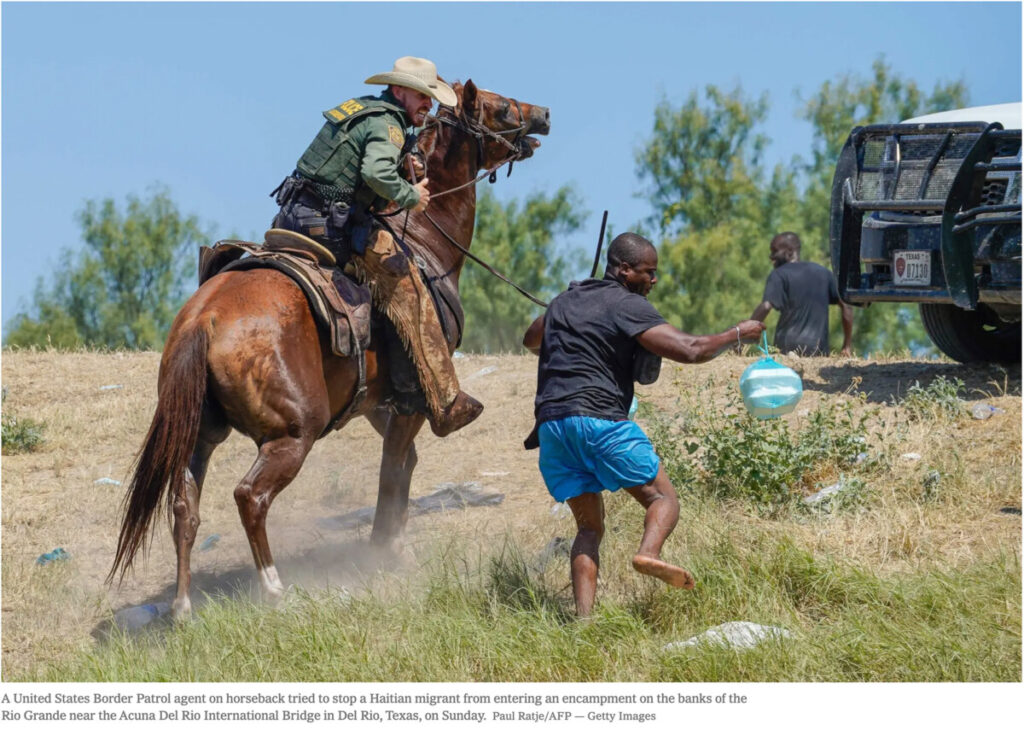
My name is Carl Cabrall and I am a Batchelor Of Fine Arts student at New York City College of Technology. I am an Afro-Caribbean black man who is a proud citizen of the United States of America. However, as an immigrant to this country, I also understand what it is to be looked upon as an object of curiosity and to be spoken to with polite veiled sarcasm. However, to be honest, sometimes it may just be an honest soul trying to be kind and doing their best to get to know you. At times, I try to keep this in mind even though it feels so awkward.
Both Mohamed Hassan and Jamila Lyiscott struck an uncomfortable chord in their discussions about how well-meaning people could be politely ignorant of the way in which they assume that your culturally specific looks, speech, hair textures, and eye color are somehow abnormal and requires you to give an explanation every time. If ever it is true that “a picture is worth 1000 words,” the above picture of President Barack Obama bending over to allow the son of one of his staff members to touch his hair is such a picture. Why is this so? It is because of what Jamila Lyiscott talked about. For some reason, it seemed as if it was important to this young man that he find out if the president’s hair was exactly the same look and texture as his very own.
As a black American man, I see a lot of things that make my heart sink and one can only assume the level of stress that fellow immigrants deal with. In both videos, we see excerpts of Jamila and Mohamed’s journey as they assimilate into American society. For others it is way worst because of what is perceived to be either, less than, better than, greater than, or more intellectual than along the ‘smorgasbord’ of immigrants. NPR reports that the USA (caption 1) is set to retrieve 100,000 Ukrainians from the War. On the other hand, on September 20, 2021, a New York Times article reports that Border Patrol is being investigated for their treatment of Haitien refugees who were being confronted with horses and being sent back to their country immediately (Captions 2 and 3). Additionally, the NY Times reported (caption 4), that the US immigration system is at its breaking point.

CAPTION 1 
CAPTION 2 US flies thousands of Haitian Migrants back home. 
CAPTION 3
How is the immigration system at its breaking point when Haitians and Latin American refugees are running for their lives but still healthy enough for the US to effortlessly absorb 100000 Ukrainian refugees? These sorts of events played out in the news are but a fraction of the unspoken implicit undercurrents behind the passion in Jamila and Hassan’s speech. According to one Federal immigration judge, “except for the native American people, we are all immigrants.”





You make some great points. This really is a difficult time for this country, for all the reasons you mention. I have to tell you, being an old civil rights and women’s rights warrior since the late 1960s, this all makes my heart hurt. About that picture of President Obama and the little boy: the young man just graduated high school and the President posted about it, congratulating him. Thank you for the thoughtful post.